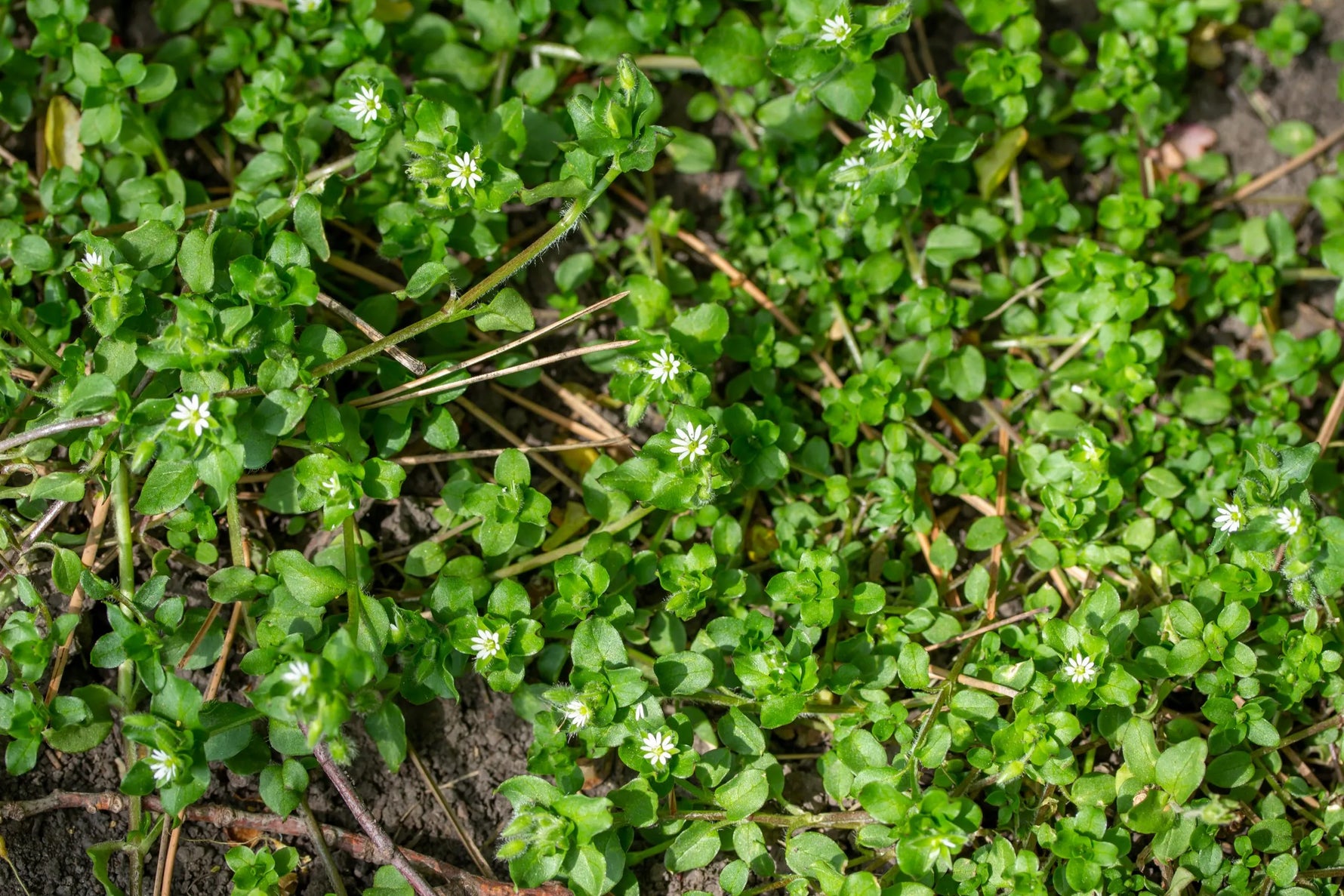Grass and Forages

Providing your guinea pig with a natural staple such as grass is an essential key to maintaining healthy gut mobility and should be offered as regularly as possible. Grass is not just great for your pets' gut health, but is high in lots of additional vitamins and minerals that are essential for good overall piggy health!
Forages for guinea pigs are plants and leafy greens that guinea pigs can safely eat as part of their diet, often found in everyday backyards, parks or other green spaces. Forages are important because they provide natural nutrients, fibre and enrichment, mimicking guinea pigs' natural grazing behavior in the wild. It's important to learn the safe ones from unsafe ones, as the wrong plants can be very harmful for your piggies!
The best part, though? If you find a great grass or forage source somewhere, and it's safe and ok for you to pick, it's free food for your piggies!
⚠️ IMPORTANT NOTE: With any of the listed plants below, if you are in any doubt of what the plant or grass could be, it's safer to leave it than risk making your piggies ill. Guinea Pigs Australia takes no responsibility for incorrect identification and any effects that may result.

LOCATION
🌾 Where To Source Your Grass
Grass must be picked carefully to ensure it is safe for your piggies to eat. If you're in doubt of any of the factors below, it's best to leave it rather than risk it.
Make sure your grass location is:
Herbicide and Pesticide Free: Never harvest grass from areas that have been sprayed with chemicals, as this can be potentially fatal if fed to your guinea pig. Areas must be free from herbicides and pesticides.
Roadside Free: Pick grass away from roadsides to avoid contaminants from exhaust fumes.
Contaminant Free: Grass which has been soiled by animals and livestock should be avoided (think bird poop, dog poo etc.). Grass must be fresh and unspoiled.
Mould Free: Grass should be healthy, green and fresh. Do not feed grass which appears to have mildew or mould on it. Avoid picking grass that's near toadstools, other fungi or around unsafe plants for piggies.
Not Lawn Mower Clippings: Avoid using grass clippings from a lawn mower, as the heat and crushing motion can cause the grass to begin fermentation. If eaten, this may upset the delicate balance of bacteria in your piggies' tums. Always offer freshly hand-picked grass.
(Image courtesy of HayPigs)
Common Forages Safe for Piggies

✔️ Dandelion Greens
These are rich in vitamins A, C, and K, and they have a slightly bitter taste that guinea pigs often enjoy. You can feed both the flowers, stalks and leaves.
Feed these in moderation as they are quite high in calcium and can contribute towards bladder stones and urinary issues if fed too frequently.

✔️ Clover (White and Red)
Clover is a great source of calcium and protein but should be given in moderation due to its high calcium content. You can feed both the flowers and greenery.
⚠️ Note: Oxalis is a weed similar in appearance to clover but is DANGEROUS to guinea pigs. One of the main differences is oxalis has small light green or purple heart shaped leaves and small yellow flowers, while clover will have oval shaped leaves and larger white flowers.

✔️ Plantain (Broadleaf and Narrowleaf)
These leaves are good for guinea pigs' digestive health and can also help with urinary issues. Commonly found in suburban gardens.

✔️ Chickweed
This is a mild-tasting plant that's easy to digest and loved by guinea pigs. Feed in moderation.

✔️ Sow Thistles
Sow thistle is soft and more palatable than other thistles, with mild, dandelion-like flowers that guinea pigs love. It has white sap but this plant is all safe for piggies to eat.
⚠️ Note: Milk thistles (very prickly thistle with purple flowers) are too spiky and should not be fed to guinea pigs!

✔️ Food Plant Leaves and Flowers
Some food plants your piggies can enjoy both the leaves and flowers of include strawberry, raspberry, apple, zuccini, pumpkin, radish, marigold and cucumber. Make sure they are free of pesticides before feeding to your piggies.
❌ NOTE: Tomato leaves and stalks are toxic and should NOT be fed to your piggies! ❌


DIY ENRICHMENT
Make Your Own Foraging Box!
Guinea pigs forage naturally in the wild, but did you know you can make your very own foraging box at home for your piggies?
Check out our video using our Ozzy Cage Kitchenettes!
Maze-A-Log Treat Challenge
$17.50
Unit price perMaze-A-Log Treat Challenge by Rosewood
This toys provides a variety of compartments for your guinea pig or rabbits to scratch and sniff around to get at the delicious treats or veggies that you place inside.
- Search, scratch and safe to chew
- Size 30cm x 30cm
- Challenges your pet
- Great boredom breaker
- Provide mental stimulation
- Also suitable for ferrets and rats



















